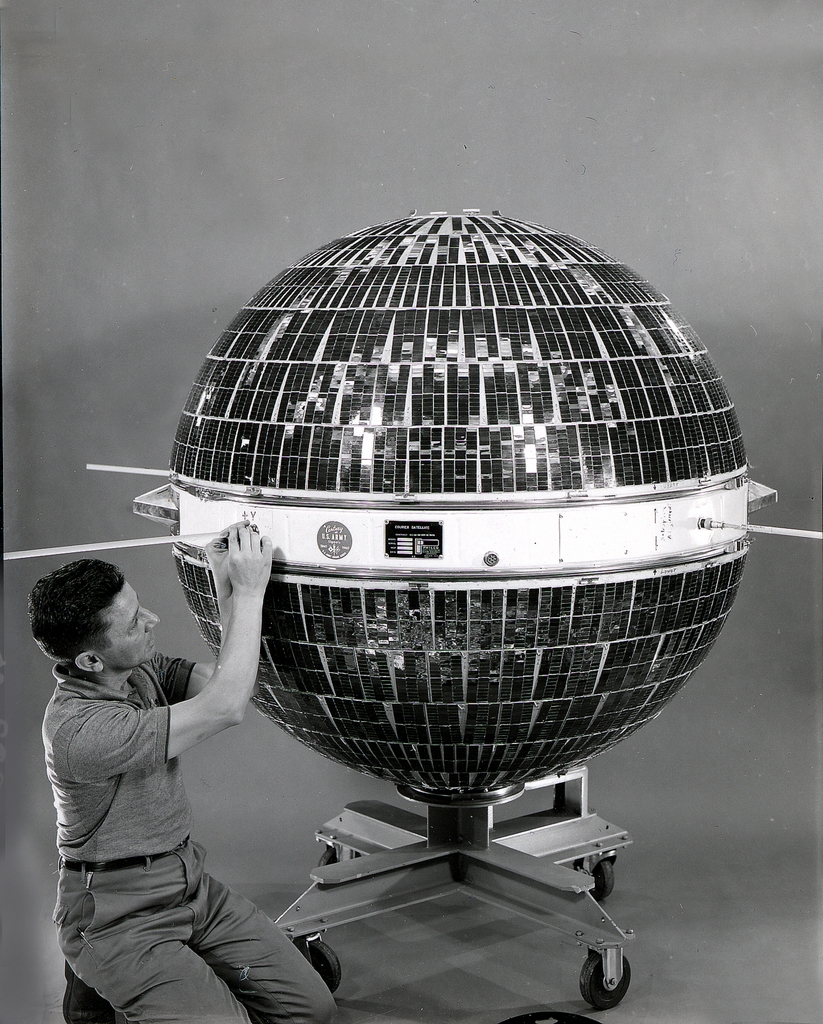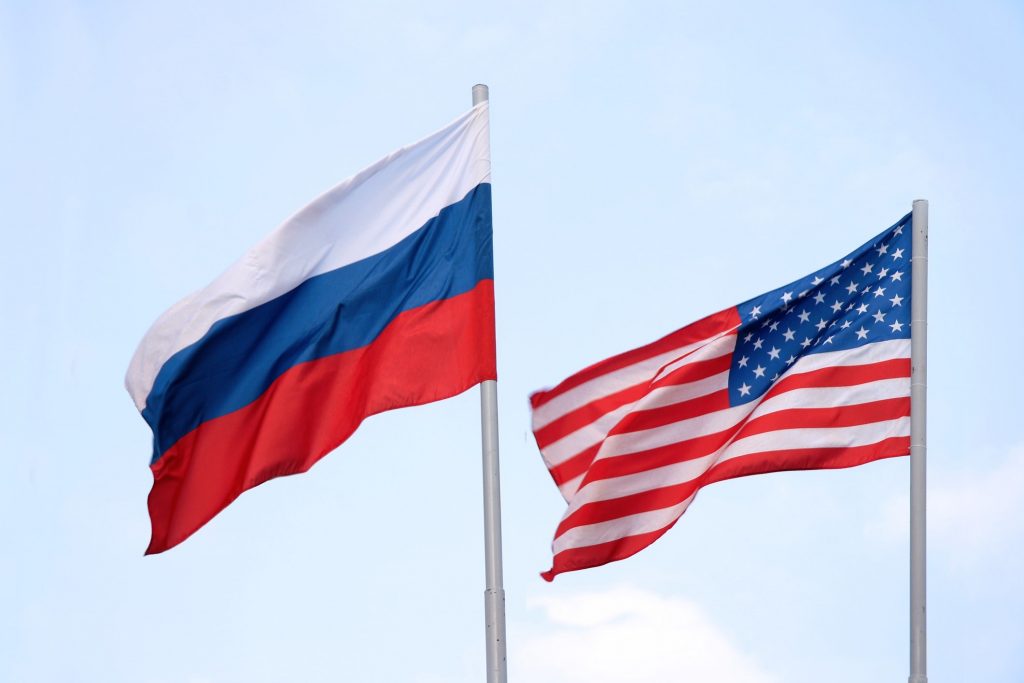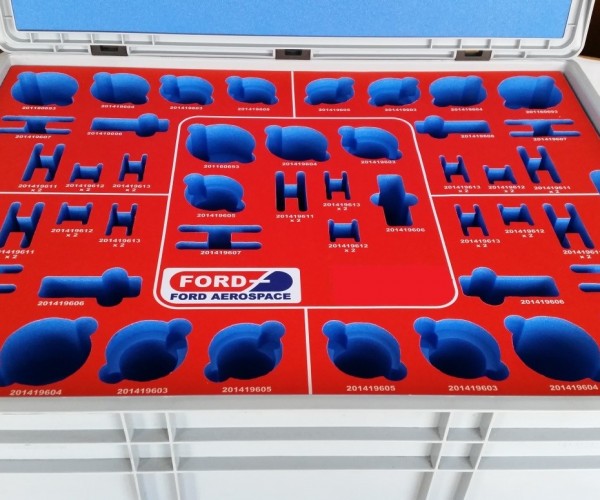Back when there was a real possibility of superpowers working together for their own good and the good of humanity, I brought a well placed Russian to Ford Aerospace after my trip to the USSR in January of 1990.
Ford Aerospace, which became Loral Space and Communications, built the first American to satellite to orbit the earth, the Explorer 1. It was launched in the wake of Sputnik hysteria after the Soviet Union beat the United States into space in 1957.
On my initiative and direction when I was in Moscow, Andrei, my Russian partner, poured the foundation with Roscosmos for the first commercial exchange between the Soviet space agency and the United States.

The meeting was a momentous one for me, and marked the endpoint of the great vision and enormous risks I took for genuine cooperation between superpower enemies. Less than six months earlier, the Berlin Wall had fallen. The 45-year Cold War, which had brought the world to the brink of nuclear annihilation at least twice, was in its final stage.
Ostensibly, the United States won and the Soviet Union lost. But in actuality, as is now so painfully clear, both the USSR and the US lost the Cold War.
I met Andrei in San Francisco in 1989 on a now quaint-sounding program called, “Soviets, Meet Middle America.” We hit it off and agreed to form an economic “joint venture” with political ramifications. When he returned to Moscow, Andrei invited me to the Soviet Union, and I flew there in mid-January 1990.
Andrei, who turned out to be a little too well connected, had been touted as a leading example of perestroika, the sweeping economic reforms that Mikhail Gorbachev was implementing to try to save the USSR. Having been raised in a business family with a father who had become a top manager for a big insurance company, this was both a tremendous opportunity and a work of philosophical praxis for me.
I told Andrei what I had been saying to the numerous high-level businesspeople in California I had met with — that we needed Russia for its spiritual and philosophical resources as much as they needed us for our economic and material resources. To my surprise, this premise opened many doors in America at that time.
Though I detested communism, I never succumbed to the binary choice between it and capitalism that defined the national and geopolitical culture of my youth. When communism collapsed in Eastern Europe, I saw that it would soon collapse in the Soviet Union, and asked the question: what will take its place?
With my partners in the US, our intent was to “help build an ecologically and ethically sound global market with our former superpower enemy.” It sounds absurd now, but there was a chance of doing so at that juncture, though less of one than I thought at the time.
In the United States, there was a sense of rapid moral and spiritual decline in the ‘80’s, a feeling that something had to give here as well. Of course, Americans, being Americans, were generally blind to these undercurrents, and our political and media leaders were only too willing to uphold the delusion of American exceptionalism.
To place these events in context, they took place during George Bush Senior’s presidency, before the first Gulf War, before Bill Clinton’s eight wasted years, before the LA riots, and before the Space Station with Russia was conceived.
Providence appeared to be at work, since what my strongly anti-communist mother used to say (which went in one ear and out the other by the time I was 16), seemed to have gone from her lips to Russian ears: “When the Russians finally throw off the chains of communism, we Americans will be there to help them build a democracy and market.”
Now the United States is on the verge of losing its democracy, though economists like Paul Krugman crow about the booming market.
Everywhere I went in Russia people stopped me to ask me how the market worked, and whether Americans were coming to help them build one. They thought I represented the leading edge of the Russian peoples’ rescue from their desperate economic condition. They told how Americans had saved hundreds of thousands of Russians from starvation during a famine while Lenin was still in power! Who knew in the USA?
After the Wall fell, President Bush and Secretary of State James Baker promised Gorbachev that the US would not expand NATO if he let go of the Russian satellite nations in Eastern Europe. Gorbi was foolish enough to take them at their word, and not get it in writing. That set the stage for Putin and the relations we have with Russia today.
The meeting with Ford Aerospace was with five vice-presidents, three of whom had worked on the Explorer. We had a small contract on the table, with an eye to using Russia’s huge, reliable rockets.
All the VP’s had veto power. It failed by one vote, with 4 to 1 in favor.
Ninety per cent of Ford Aerospace’s business to that point had been military contracts, so Andrei had to obtain special clearance to enter the building. He gave an impressive presentation. Then the lawyer turned to me and said in a haughty tone: “We’ve been working with a well placed man in Houston for some time to make a connection with Roscosmos. Frankly, you’re a nobody; why should we do business with you?”

Though I was still a young man, I didn’t flinch. I looked him in the eye and said, “First, we’re here; he isn’t. Second, you know Andrei is the real deal, and can make whatever we agree on happen.”
The next day, the VP with whom I had arranged the meeting called and said, “Four of us voted in favor of going forward; the lawyer vetoed it. I’m sorry.”
I knew at that moment the whole ‘Russian vision’ was over, and that things were going to go bad in the years ahead. But after Clinton was elected, I wrote to Robert Reich, who had been appointed Secretary of Labor during the transition. I described my experiences in Russia, and the meetings in California with execs in different business sectors. I pleaded with him to make the case for a latter-day Marshall Plan to restore manufacturing in America by helping Russia build a market.
A couple weeks later he wrote back, saying they had discussed my proposal, but had decided to take a multilateral approach with an emphasis on trade with China. I felt that would turn out to be a monumental mistake of historical proportions. And it has.
Ford Aerospace, as Loral Space and Communications, was embroiled during the mid-late 90’s a technology transfer scandal that could have brought down the Clinton Administration, except for the semen-stained dress of a young lady named Lewinsky. It turned out that a Chinese rocket Loral had contracted blew up 30 seconds after launch, killing at least 200 people in a Chinese village and costing Loral’s insurance companies 200 million dollars.
Now China, which gave the world the coronavirus, aims to send its astronauts to the moon to claim it for China. So we’re in a new Cold War, with an even more dangerous enemy, which America helped create by helping China graft (pun intended) capitalism onto communism.
Economically, politically and culturally, the United States and China have become a lot more alike than either cares to admit. Both are dead nations destroying the earth and humanity with their scorched earth nationalism and exceptionalism.
Martin LeFevre

